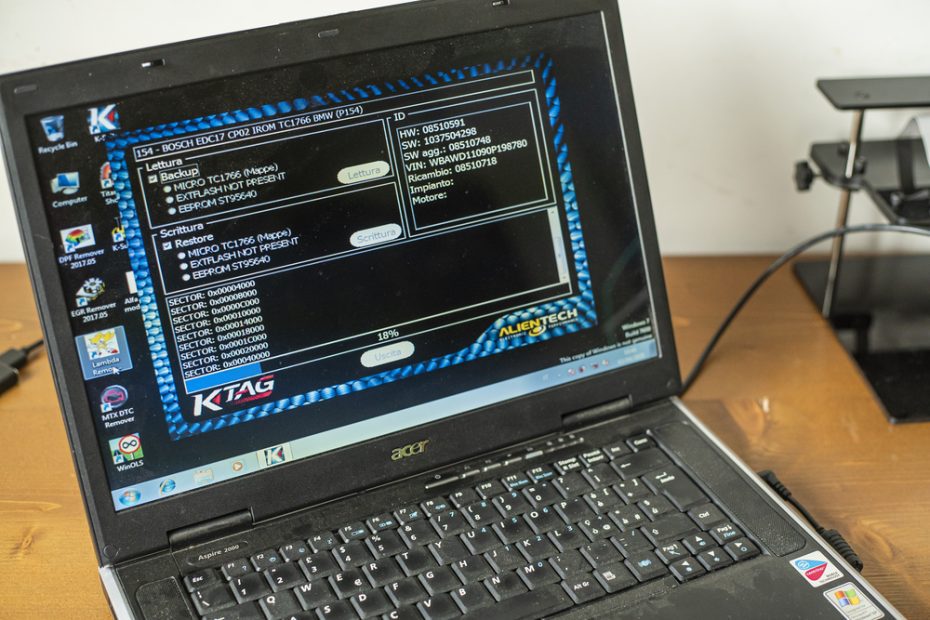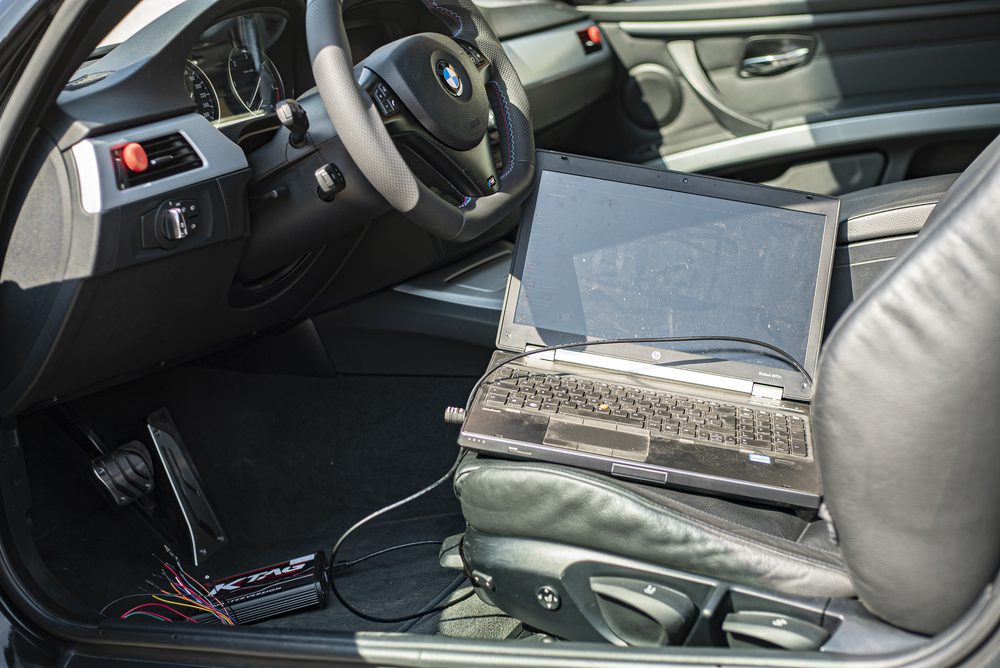Does the ECU control the dashboard?
The Electronic Control Unit (ECU) is a vital component in modern vehicles, responsible for controlling various systems and processes. However, one question that often arises is whether the ECU has direct control over the dashboard functions, such as the speedometer, fuel gauge, and warning lights.
The Role of the ECU
The ECU is essentially the brain of a vehicle, managing and regulating numerous electrical and mechanical functions. It receives input from various sensors throughout the vehicle and uses that information to make important decisions, such as adjusting fuel injection, ignition timing, and emission control.
While the ECU plays a critical role in ensuring optimal performance and efficiency, it does not directly control the dashboard functions. Instead, it communicates with the instrument cluster, which is responsible for displaying information to the driver.
The Instrument Cluster
The instrument cluster, also known as the dashboard, is the panel behind the steering wheel that houses various gauges, indicators, and displays. It provides crucial information to the driver, including vehicle speed, fuel level, engine temperature, and warning lights for issues like low oil pressure or a malfunctioning ABS system.
The instrument cluster itself is a separate module that receives data from the ECU via a network protocol known as Controller Area Network (CAN). This network allows for seamless data exchange between the ECU and the instrument cluster, ensuring accurate and real-time display of information.
ECU’s Influence on Dashboard Functions
Although the ECU doesn’t directly control the dashboard functions, it does have an indirect influence on them. For example, if there is a fault detected by the ECU related to engine performance or emissions, it can trigger a warning light on the dashboard to notify the driver of a potential issue.
The ECU can also provide data to the instrument cluster for certain functions. For instance, it can send information about engine speed to the tachometer or fuel level data to the fuel gauge. However, it’s important to note that the instrument cluster itself is responsible for interpreting and displaying this data.
Quote: “The ECU and the instrument cluster work together in harmony to ensure accurate and timely information is displayed to the driver, enhancing safety and driving experience.”
Does the ECU Control the Fuel Pump?
When it comes to the functioning of a vehicle’s fuel system, the Engine Control Unit (ECU) plays a crucial role. The ECU is responsible for monitoring and controlling various aspects of the engine’s performance, including the fuel delivery system.
Yes, the ECU does control the fuel pump. The fuel pump is an essential component that ensures the correct amount of fuel is delivered to the engine for combustion. In modern vehicles, the fuel pump is typically an electric device located inside the fuel tank.
The ECU constantly communicates with sensors throughout the vehicle to gather information about the engine’s operating conditions. These sensors provide data such as engine speed, intake air temperature, throttle position, and oxygen levels in the exhaust gases.
Based on this information, the ECU determines the optimal fuel injection timing and duration to achieve efficient combustion. It then sends signals to the fuel pump to supply the appropriate amount of fuel to the engine.
How does the ECU control the fuel pump?
The ECU controls the fuel pump using a relay. The relay acts as a switch, allowing the ECU to turn on or off the power supply to the fuel pump. By controlling the relay, the ECU can regulate the fuel pump’s operation.
Additionally, the ECU monitors the fuel pressure in the fuel system through various sensors. If the fuel pressure deviates from the desired level, the ECU can adjust the fuel pump’s speed to maintain optimal pressure.
The importance of ECU control over the fuel pump
The ECU’s control over the fuel pump is vital for several reasons:
- Efficiency: By precisely regulating the fuel delivery, the ECU ensures that the engine operates at its most efficient state, improving fuel economy and reducing emissions.
- Performance: The ECU adjusts the fuel pump’s operation based on real-time data, allowing for optimal engine performance under different driving conditions.
- Safety: In the event of a problem in the fuel system, such as a fuel leak or excessive pressure, the ECU can intervene by shutting off the fuel pump to prevent any potential hazards.
Overall, the ECU’s control over the fuel pump is crucial for the proper functioning of the vehicle’s fuel system, ensuring optimal performance, efficiency, and safety.
Does the ECU control the engine?
The Electronic Control Unit (ECU) plays a crucial role in managing various functions of a vehicle, including controlling the engine. The ECU, also known as the Engine Control Module (ECM), is a computerized system that monitors and regulates the engine’s performance based on input from various sensors. It acts as the brain of the engine, ensuring optimal performance, fuel efficiency, and emission control.
How does the ECU control the engine?
The ECU receives information from sensors placed strategically throughout the engine, such as the oxygen sensor, throttle position sensor, and coolant temperature sensor. These sensors provide real-time data about factors like air-fuel mixture, engine temperature, and throttle position. Based on this data, the ECU adjusts parameters such as ignition timing, fuel injection, and idle speed to optimize engine performance.
The ECU uses a pre-programmed set of instructions, called a map or a calibration, to determine the appropriate parameters for different operating conditions. For example, during cold starts, the ECU may increase the fuel injection duration to provide extra fuel for easy ignition. Similarly, during high-speed driving, the ECU may adjust the ignition timing to maximize power output while maintaining fuel efficiency.
Benefits of ECU control
The ECU’s ability to control the engine offers several benefits:
- Improved fuel efficiency: By precisely adjusting fuel injection and ignition timing, the ECU ensures efficient combustion, leading to better mileage and reduced fuel consumption.
- Enhanced performance: The ECU optimizes engine parameters for different driving conditions, delivering improved acceleration, power, and overall performance.
- Reduced emissions: By constantly monitoring and adjusting engine parameters, the ECU helps minimize harmful exhaust emissions, thereby meeting environmental regulations.
- Diagnostic capabilities: The ECU is equipped with built-in diagnostic functions that can detect engine malfunctions and illuminate warning lights on the dashboard, alerting drivers to potential issues.
“The ECU’s ability to control the engine allows for a harmonious balance between performance, efficiency, and environmental responsibility.” – Automotive Expert
In conclusion, the ECU plays a vital role in controlling the engine by monitoring sensor data and adjusting engine parameters to optimize performance, fuel efficiency, and emission control. Its ability to adapt to various driving conditions and provide real-time adjustments makes it a crucial component in modern vehicle technology.
Conclusion
In summary, the ECU does not directly control the dashboard functions in modern vehicles. Instead, it communicates with the instrument cluster to provide data and receive feedback. While the ECU plays a crucial role in overall vehicle performance, it is the instrument cluster that is responsible for displaying information to the driver, such as speed, fuel level, and warning lights.



